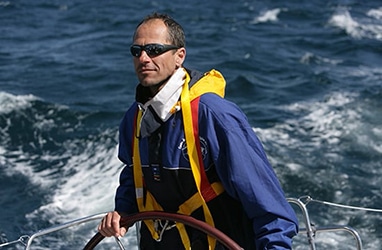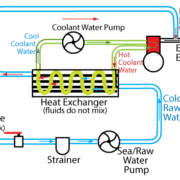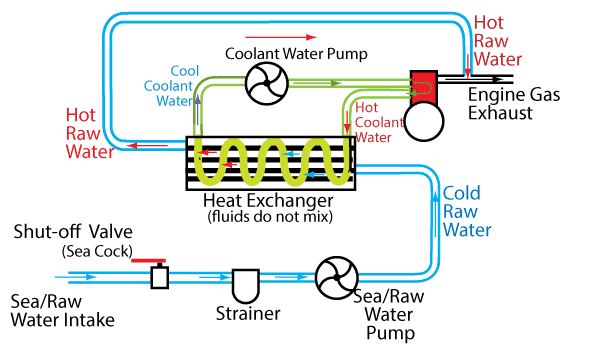Sailboat Diesel Closed Water System
The second cooling system fluid is called the closed or coolant water system. Some elements of this system include:
- Water
- Antifreeze
- Heat exchanger
- Thermostat
- Cycle to the hot water heater
- Water circulating pump
- Reservoir
Antifreeze is added to the water in this system to lower the temperature at which the water will freeze. This is imperative because should the water freeze and expand inside the closed system, things will break.
The engine’s thermostat opens and closes, much as in an automobile, to maintain optimum water temperature for efficient engine operation.
A circulating pump moves the coolant mixture throughout the closed system. This pump is belt-driven and often not easy to access or service. Because the antifreeze water mixture is not corrosive, this pump should remain trouble-free for a long time.
It is important to check the closed water system fluid level in the reservoir and via the cap located usually on top of the engine. However, as with a car, only crack open the cap when the engine is cold. When hot, the system is under high pressure and thus extremely dangerous. Also during inspection, look for chaffed or damaged hoses that can cause leaks.
Standard maintenance also includes checking the tension of the belt that drives the pump. A belt that is either too loose or too tight can cause problems. See your operator’s manual for recommendations. Spare parts to have on your boat include belts, hoses and clamps, antifreeze, and a thermostat.








